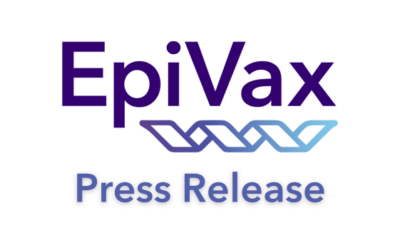PROVIDENCE, R.I., Oct. 24, 2024 /PRNewswire/ — EpiVax, Inc. and CUBRC, Inc. announce today that they have been awarded a two-year, $2 million contract (#75F40124C00094) from the Office of Generic Drugs (OGD) of the Food and Drug Administration (FDA) to develop standardized controls for T cell assays performed to assess the immunogenicity risk of generic drugs in support of ANDA applications as outlined in the relevant FDA guidance. The new contract will establish new “standards” that may be used to enhance specificity and sensitivity across industry assay methods.
Generic peptide drugs (including generic versions of well-known brands like Ozempic and Wegovy) play a vital role in improving healthcare access by providing affordable and effective treatment options at a lower cost. FDA has been working to facilitate access to needed medicines at lower costs without sacrificing standards that result in high-quality, safe, and effective medications. See, for example, information provided by the FDA here.
The new FDA-funded collaboration builds on research performed by EpiVax during two previous FDA contracts that evaluated the immunogenicity risk of generic drug impurities. Under the first contract, EpiVax demonstrated the value of in silico and in vitro methods for immunogenicity risk assessment of two well-known generic peptide drugs. Under the second contract, EpiVax developed the What-if Machine (WhIM), an algorithm designed to perform iterative modifications to the amino acid sequence of a synthetic peptide drug (in silico), generating a comprehensive list of impurities for that sequence, and prospectively identifying high and low risk impurities to allow for the de-risking of drug products. This information helps to ‘frame’ the risk for each generic drug and may assist drug developers and FDA reviewers to differentiate impurities that are potentially riskier from those that are lower risk.
For the latest research program, EpiVax will identify and qualify standard peptide-sized positive and negative controls to support generic peptide drug ANDA applications for common generic drug peptides such as teriparatide, exenatide, liraglutide and tirzepatide. EpiVax’s Peptide Abbreviated New Drug Application (PANDA®) approach uses the same orthogonal methods utilized to identify and assess potentially immunogenic impurities for the FDA. The approach is described in a review titled “Immunogenicity Risk Assessment of Synthetic Peptide Drugs and Their Impurities.” The details of one of the FDA-contracted programs were expanded upon in, “Assessing the Immunogenicity Risk of Salmon Calcitonin Peptide Impurities Using In Silico and In Vitro Methods.”
EpiVax looks forward to executing this latest FDA-funded research in collaboration with CUBRC and continuing to improve access to safe and effective generic peptide drug products by leading in the development of new industry standards for generic peptide drug immunogenicity assessment.
About EpiVax
EpiVax is a leader in the industry of immunogenicity assessment and sequence optimization for peptide therapeutics, biologic therapeutics, and vaccines. EpiVax partners with a global roster of companies, agencies, and academics to accelerate immunogenicity risk assessment, immune modulation and rapid vaccine design. Visit www.epivax.com for more information.
About CUBRC
CUBRC is an independent not-for-profit scientific corporation that executes Research, Development, Testing and Systems Integration programs in Medical Sciences, Chemical and Biological Defense, Data Science and Information Fusion, Command and Control, and Hypersonics. Visit www.cubrc.org for more information.
FDA Funding Statement
The FDA sponsors the project referenced in this press release. The content of the information does not necessarily reflect the position or the policy of the federal government, and no official endorsement should be inferred. The entire project (~$2M) will be financed with federal money.
Press Contact
Sarah Moniz
Director, Business Development
EpiVax
[email protected]
SOURCE EpiVax, Inc.


